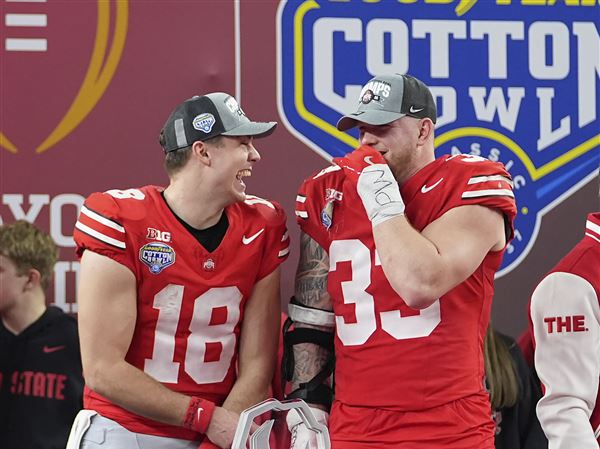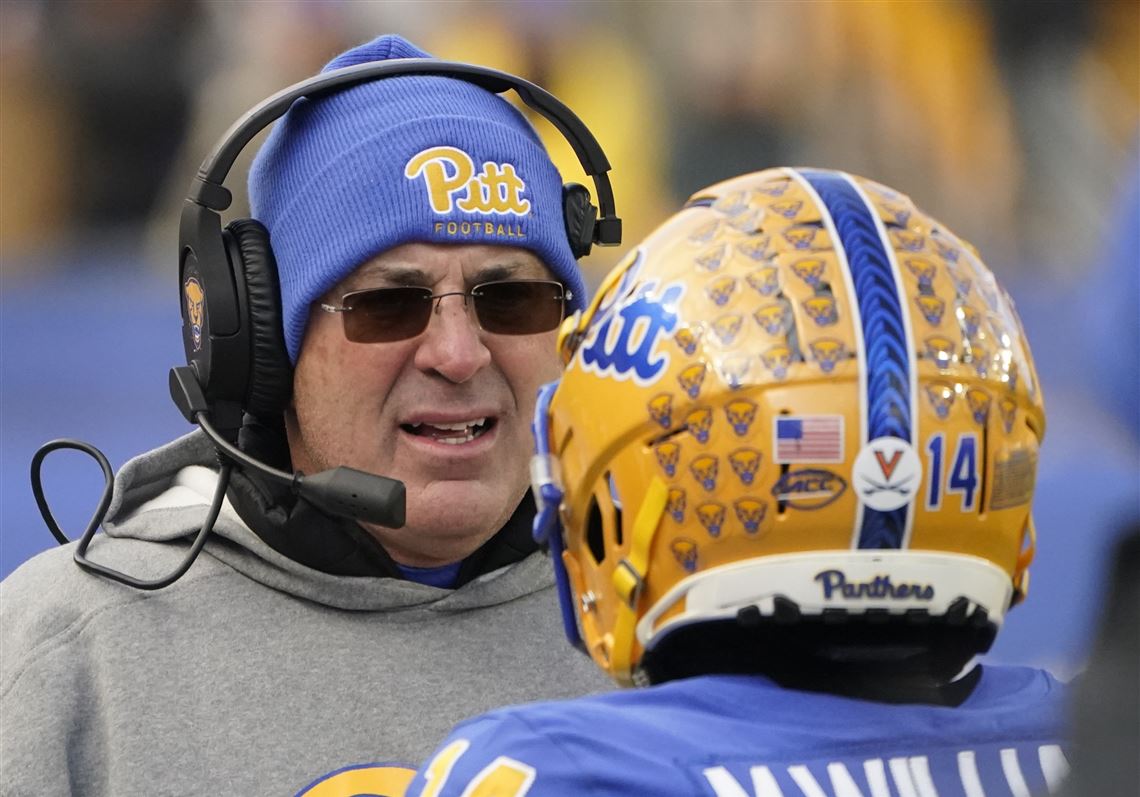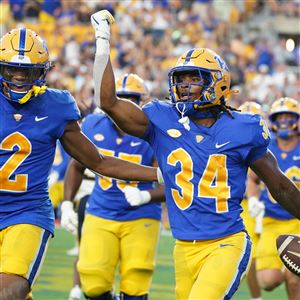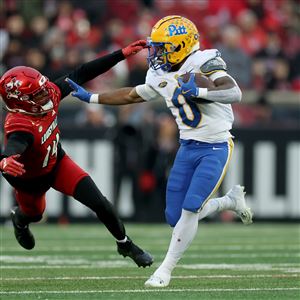There are a lot of changes imminent in the college sports landscape, with the House v. NCAA settlement close to being approved. While changes won’t take effect until July, Pitt football coach Pat Narduzzi is already ruminating on the issues — namely roster changes.
Instead of individual scholarship limits, teams will have a fixed roster limit of 105 players. This means schools can choose to offer more scholarships instead of the 85 that used to be the case. However, this limits the amount of players on a team.
Coaches used to be able to stack their rosters with bodies, adding walk-ons after the 85 limit was reached. That won’t be the case anymore.
Narduzzi said he’s been told the magic 105 number doesn’t need to be met until classes officially start. Fall training camp usually begins at the beginning of August, and classes don’t begin until Aug. 25. So Pitt football doesn’t have to make cuts until after training camp.
“There'll be a lot of competition going on in fall camp, which makes it great for everybody,” Narduzzi said. “You got to earn your position. Anybody that's cut those guys loose early kind of said, ‘Oh, it's going to be 105. Let's just get rid of them now.’ We're not doing that. That's not fair to the kids.”
U.S. District Judge Claudia Wilken hearings expressed some concerns over the new roster rules at multiple points throughout Monday’s hearing. She suggested the settlement could be amended to allow for new scholarship and roster rules to be phased in gradually and current athletes could be “grandfathered in” while their programs catch up to the new rules.
Narduzzi was on board for the grandfathering idea considering how many athletes this could affect. As of now, Pitt football has 102 players on its 2025 roster, with at least seven freshmen set to join in the summer.
But Narduzzi isn’t too worried about the logistics right now. There’s a spring game to be played on Saturday. Nevertheless, he doesn’t totally mind the constant changes in the college sports landscape.
“You like a challenge,” Narduzzi said. “I don't like to get stale. If it's the same thing, it gets monotonous after a while. There's always going to be change, whether it's rule changes on the field or rule changes off the field. You hope it gets straightened out and cleaned up a little bit. But whatever the rules are, we play by the rules and do what we have to do. I've got great support up on campus with Chancellor [Joan Gabel] and [athletic director Allen] Greene up there. Allen's done a great job helping us whatever we need every turn we take.”
Comfortable in the offense
There have been a lot of conversations revolving around the comfort levels in offensive coordinator Kade Bell’s system now that Pitt is in Year 2. Everyone from quarterback Eli Holstein to running back Desmond Reid and the entire offensive line room has a better understanding of the playbook.
At the same time, there’s more film available. The Panthers had the surprise factor at the beginning of last year. Not one team knew what Pitt’s offense was capable of heading into last year, and the Panthers took advantage of that, jumping out to a 7-0 start.
“People disrespected us early in the year,” Bell said. “We showed people that we could get guys open. We could game plan it and make some and create some plays. Then people started changing. We started getting a lot of different stuff, a lot of different coverages and a lot of different fronts. Now we understand exactly what, how teams want to play us and what they're going to try doing.”
It allowed Bell to take a bit of a different approach both with individual players and the offense as a whole during spring drills. He worked with Holstein on identifying the quarterback’s weakness from last year. They honed in on those areas in the spring, as well as figuring out how they can make up for the things he still doesn’t do well.
As a group, Bell doesn’t have a script at practice. Every day is going to look different, and the players aren’t going to know ahead of time what exactly they’ll be running.
“One of the reasons I do that is because I want our kids to be able to handle adversity,” Bell said. “Can they handle things switching up on them like a game? If we can't make an adjustment after the second or third drive of the game or even the first drive, if we're waiting till halftime, you're gonna lose a lot of games. Our job is to put these guys in tough situations, stress them learning. So when we do to get an uncomfortable situation and we do get a different coverage or something different, can our kids handle the answers? That's what I want to see us do this year.”
First Published: April 10, 2025, 5:32 p.m.




















